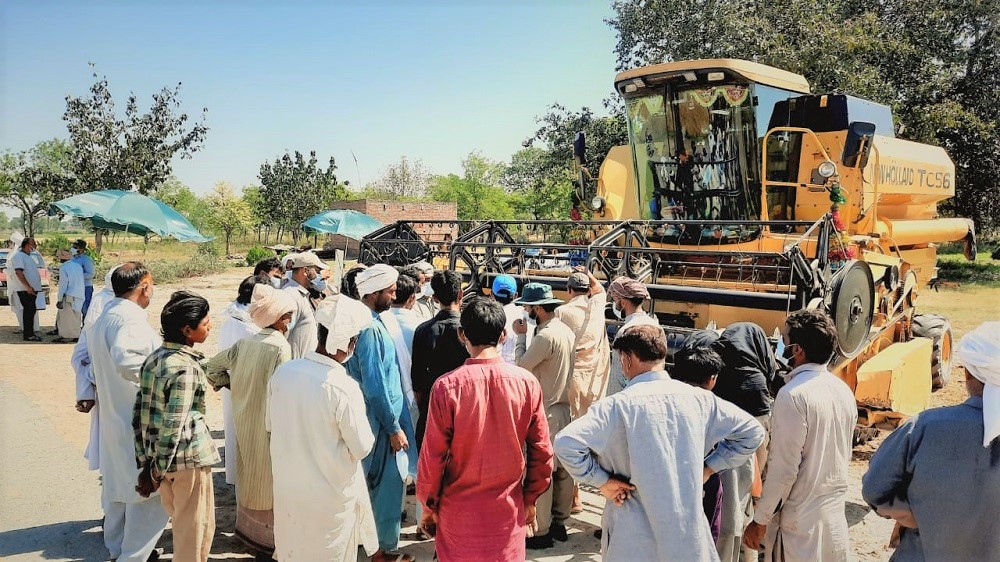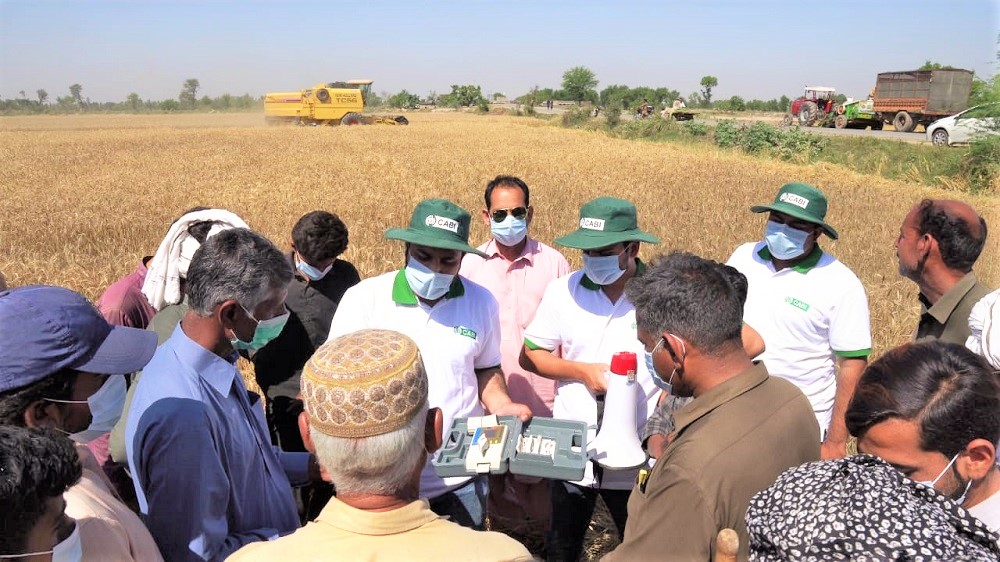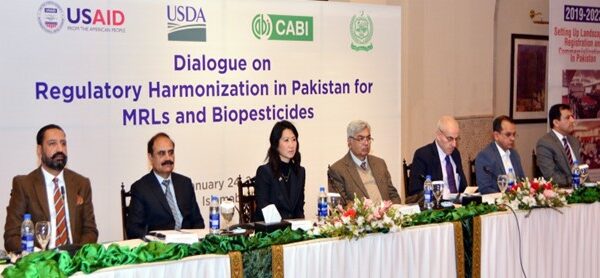
CABI is working with the Asian Development Bank (ADB) to help small-scale wheat farmers in the Hafizabad and Sheikhupura districts of Punjab, Pakistan, boost their productivity by demonstrating the benefits of modern machinery – the New Holland TC-56 combine harvester and wheat straw chopper.
ADB is collaborating with the Government of Punjab, Pakistan, through its assistance programme to the Department of Agriculture entitled: ‘Enhancing technology-based agriculture and marketing in rural Punjab.’ Meanwhile CABI is working with ADB and the government as lead Technical Assistance Agency.
Over 1,800 wheat growers from the two districts attended pilot field demonstrations of the machines as part of CABI’s work with ADB aimed at improving the quality and value of produce by adopting advanced technology in production, harvesting, processing, storage and marketing of wheat, rice and maize.
Twenty-four literacy training sessions were organized where wheat growers actively participated in demonstrations and has their queries responded to by the project field teams and service providers. They fed back that they were satisfied with the harvesting performance of the New Holland TC-56 combine and wheat straw chopper.
Mr Muhammad Ammanullah, a progressive farmer from Sheikhupura, said harvester machines currently available on the market are of old technology which causes huge crop losses at the time of harvesting – ultimately impacting the income of the farming communities.

Another farmer from Hafizabad, Muhammad Asghar, said unexpected rain falls – believed to be exacerbated by climate change – urges him to use combine harvesters rather than the manual harvesting of his wheat crop. This method is more time efficient with less post-harvest losses. By using a straw chopper, he can also obtain husk for dairy purposes.
Dr Babar E. Bajwa, CABI’s Senior Regional Director for Central and West Asia, said, “Wheat is a main staple food of Pakistan which contributes about 37% of the total food energy intake. The mechanization of crop harvesting can play major role in reducing postharvest losses and as such increase productivity and profitability for farmers.”
Early adopters, or champion farmers, were also given an opportunity to share their experience with fellow wheat growers. Farmers were keen to know about the commercial availability of the combine harvester for the upcoming wheat seasons. Meanwhile, a group of smallholder farmers showed their interest in renting the equipment to harvest their crop next season.
Dr Shakeel Ahmad, Team Lead of the project, said the pilot field demonstrations were undertaken amicably and farmers showed a keen interest throughout.
“Farmers were very much eager to learn about machine performance, especially grain loss and grain quality. At the same time, farmers were quite satisfied with the straw chopper that can produce very good quality straw. Farmers can also use wheat straw for their livestock.
“The wheat straw is a marketable product. Farmers can market it at a reasonable price and, in certain cases, gross income from straw is almost half of the grains. Therefore, farmers assign a higher value to wheat straw,” he said.
Farmers were very much grateful to ADB, Agriculture Department, Punjab, and CABI team for introducing the New Holland TC-56 combine wheat harvester and wheat straw chopper which can contribute significantly to uplifting their agriculture and, ultimately, their livelihoods.
Additional information
Main image: Wheat growers of Hafizabad district, Punjab, in Pakistan briefed about the New Holland TC-56 combine harvester and wheat straw chopper (Credit: CABI).
Authors:
Mr Saqib Ali, Communication Assistant, CABI
Dr Umair Safdar, Communication Executive, CABI
Dr Shakeel Ahmad, Team Lead/Project Manager, Enhancing Technology-Based Agriculture and Marketing in Rural Punjab
Related News & Blogs
Sindh farmer gains global recognition for sustainable cotton farming innovations
Photo credit: Evronas/Better Cotton. Location: Better Cotton Conference, Istanbul, Türkiye, 2024. Sindh farmer Fateh Muhammad Laghari has gained recognition for his commitment to sustainable cotton farming practices as part of the Better Cotton Member…
5 December 2024




